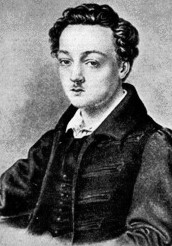A Quote by Laurence Sterne
Only the brave know how to forgive; it is the most refined and generous pitch of virtue human nature can arrive at.
Related Quotes
But at the end, if we are brave enough to love, if we are strong enough to forgive, if we are generous enough to rejoice in another's happiness, and if we are wise enough to know that there is enough love to go around for us all, then we can achieve a fulfillment that no other living creature will ever know, we can reenter paradise.
Anarchists believe that we can govern ourselves in the absence of coercive and centralized authority; the underlying premise about human nature (to use an infinitely problematized but necessary term here) is fundamentally positive. And the evidence that in disasters people are really pretty kind, generous, brave, resourceful and creative fed that.
There is that in the soul of man which must respond to the highest in virtue. It may not respond at once. Human nature can easily be over-faced by examples too remote and austere. Moreover, human nature can easily deny God because the whole race has long been in rebellion against Him. Yet there is that in human nature which calls out to the supreme examples of virtue: owns, as it were, the intention of God who made it, and feels the unmistakable homesickness of the soul.
I am convinced that courage is the most important of all the virtues. Because without courage, you cannot practice any other virtue consistently. You can be kind for a while; you can be generous for a while; you can be just for a while, or merciful for a while, even loving for a while. But it is only with courage that you can be persistently and insistently kind and generous and fair.
Human nature itself is evermore an advocate for liberty. There is also in human nature a resentment of injury, and indignation against wrong. A love of truth and a veneration of virtue. These amiable passions, are the "latent spark" . . . If the people are capable of understanding, seeing and feeling the differences between true and false, right and wrong, virtue and vice, to what better principle can the friends of mankind apply than to the sense of this difference?
The very person you find it hardest to forgive is the one you need to let go of the most. Forgiveness means letting go. It has nothing to do with condoning behavior, it's just letting the whole thing go. We do not have to know how to forgive. All we need to do is be willing to forgive. The Universe will take care of the hows.
They say that when god was in Jerusalem he forgave his murderers, but now he will not forgive an honest man for differing with him on the subject of the Trinity. They say that God says to me, "Forgive your enemies." I say, "I do;" but he says, "I will damn mine." God should be consistent. If he wants me to forgive my enemies he should forgive his. I am asked to forgive enemies who can hurt me. God is only asked to forgive enemies who cannot hurt him. He certainly ought to be as generous as he asks us to be.
Publishing is the only industry I can think of where most of the employees spend most of their time stating with great self-assurance that they don't know how to do their jobs. "I don't know how to sell this," they explain, frowning, as though it's your fault. "I don't know how to package this. I don't know what the market is for this book. I don't know how we're going to draw attention to this." In most occupations, people try to hide their incompetence; only in publishing is it flaunted as though it were the chief qualification for the job.
Most people believe they know how they themselves think, how others think too, and even how institutions evolve. But they are wrong. Their understanding is based on folk psychology, the grasp of human nature by common sense ¾ defined (by Einstein) as everything learned to the age of 18 ¾ shot through with misconceptions, and only slightly advanced over ideas employed by the Greek philosophers





































